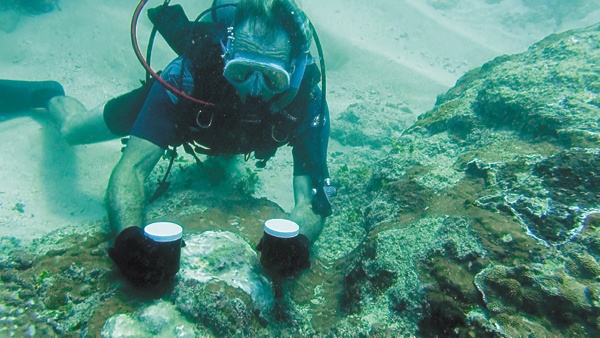LIHUE — Kauai residents Terry Lilley and Michael Sheehan took advantage of Sunday’s weakened surf to collect 10 sediment samples from North Shore streams and reefs. On Monday, the collected samples were sent to Test America in Sacramento, Calif., where
LIHUE — Kauai residents Terry Lilley and Michael Sheehan took advantage of Sunday’s weakened surf to collect 10 sediment samples from North Shore streams and reefs.
On Monday, the collected samples were sent to Test America in Sacramento, Calif., where — for $2,900 apiece — they will be tested for a variety of toxic chemicals, including dioxins, pesticides, heavy metals and more.
Test America’s Program Manager Steve LaZar said Monday the results should be available within a month.
Sample sites included the Hanalei River, Hanalei Bay, Anini Creek, Anini Bay and Sealodge.
The goal of the independent study, according to Lilley, is to find out what may be causing a cyanobacterial disease to kill corals along the North Shore. Regardless of whether chemicals are found, Lilley said the results will be beneficial.
“If the samples came back all clean, then that would let us know that there’s nothing in the sediment that’s causing this coral disease,” he said. “Either way, it’s a really positive step forward.”
A biologist and videographer, Lilley alerted scientists to the outbreak more than a year ago. Since then, it has been documented on two species of rice corals and gained the attention of scientists from the U.S. Geological Survey, the University of Hawaii and the National Oceanic and Atmospheric Administration.
Test America provided Lilley with all the necessary equipment to collect and ship the samples himself, including jars and labels.
The state Department of Health and USGS are also in the process of pinpointing specific locations across the state, including several on Kauai, to conduct separate pesticide testing later this fall.
When complete, the DOH results will be accessible online at http://hi.water.usgs.gov.


